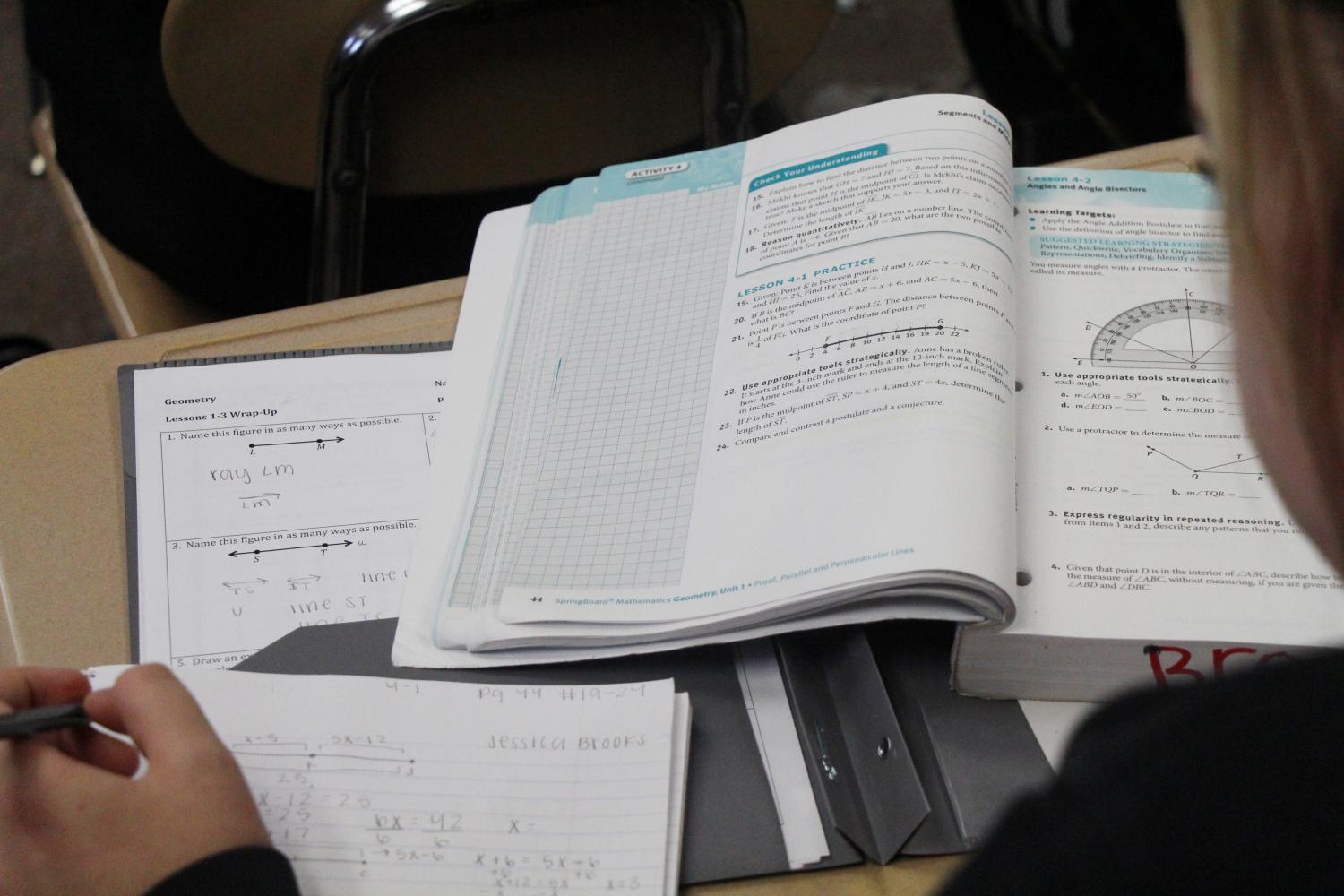New curriculum springboard for student criticism
September 15, 2017
Springboard, the new curriculum for math and science, is one of the school’s major changes this year. Springboard, the new curriculum for math and science, is one of the school’s major changes this year. “The last curriculum was not as rigorous as this one. The old curriculum was more passive, and students were able to get away with not learning,” Kim Mattern, math teacher said. The old curriculum included the teacher teaching for most of the period, and the students taking notes, and doing homework based off the notes that were taken. “From the last curriculum, springboard has more real-world word problems and all the problems are unique,” Matthew Clark, algebra II teacher, said. With spring board, teachers are now allowing more students to interact with each other to benefit their learning and social skills. “The new springboard curriculum is very student-centered, and now student engagement has gone up,” Allison Wheeler, math teacher said. On the other hand, working individually was better for some students to process. “I do not prefer group work because some, including me, work better by themselves,” Taylor Coday, junior, said. A major part of the student engagement is the new work books that students can write in. “The springboard books are good because of the fact they are consumable and are helpful with ownership of their work,” Mattern said. While some teachers acknowledge the benefits, others have not made a final verdict. “I am undecided which curriculum I prefer mostly because it’s still very new, but I am optimistic about this one,” Clark said. Students are less optimistic. “I favor the old curriculum because this new one stinks. They are making things that should be simple, harder,” Coday said. “I do not like this new curriculum because it makes it harder than it is,” Taylor Hogan, senior said. Spring board does also include more college based and ACT based questions. “Springboard will teach students how to problem solve on their own and get them ready for college,” Lynda Clark, math teacher, said. However, the increased pace might not benefit everyone. “There is not enough time to allow the students to discover, and the pace may be too fast for the material we are required to cover,” L. Clark said.





